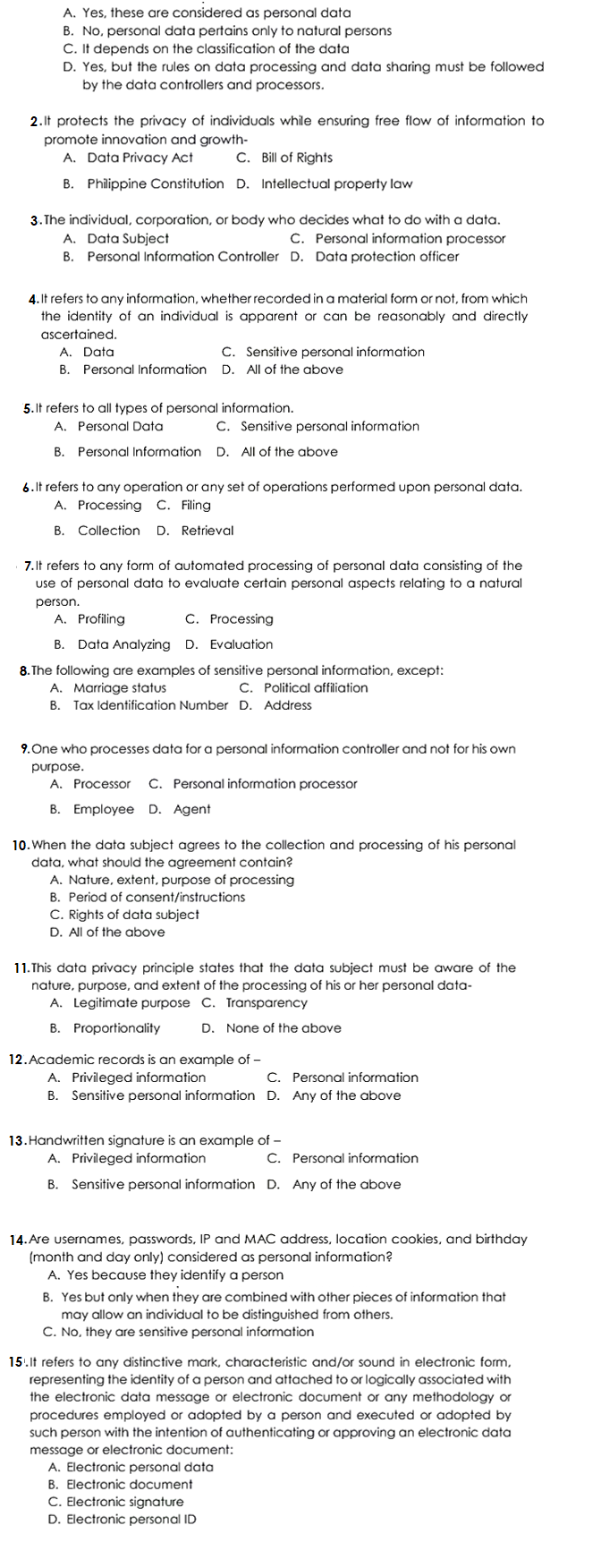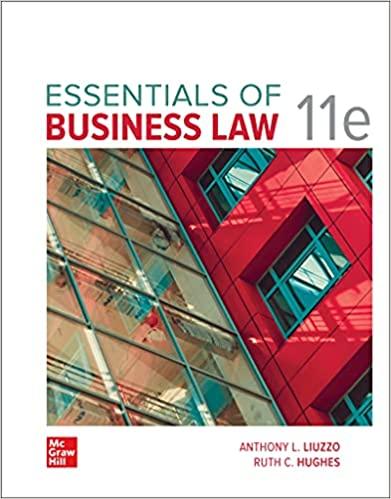1.Is the processing of corporate data like utilities consumption or even trade secrets covered by the data privacy law?
A. Yes, these are considered as personal data B. No, personal data pertains only to natural persons C. It depends on the classification of the data D. Yes, but the rules on data processing and data sharing must be followed by the data controllers and processors. 2.It protects the privacy of individuals while ensuring free flow of information to promote innovation and growth- A. Data Privacy Act C. Bill of Rights B. Philippine Constitution D. Intellectual property law 3. The individual, corporation, or body who decides what to do with a data. A. Data Subject C. Personal information processor B. Personal Information Controller D. Data protection officer 4. It refers to any information, whether recorded in a material form or not, from which the identity of an individual is apparent or can be reasonably and directly ascertained. A. Data C. Sensitive personal information B. Personal Information D. All of the above 5. It refers to all types of personal information. A. Personal Data C. Sensitive personal information B. Personal Information D. All of the above 6.It refers to any operation or any set of operations performed upon personal data. A. Processing C. Filing B. Collection D. Retrieval 7. It refers to any form of automated processing of personal data consisting of the use of personal data to evaluate certain personal aspects relating to a natural person. A. Profiling C. Processing B. Data Analyzing D. Evaluation 8. The following are examples of sensitive personal information, except: A. Marriage status C. Political affiliation B. Tax Identification Number D. Address 9. One who processes data for a personal information controller and not for his own purpose. A. Processor C. Personal information processor B. Employee D. Agent 10. When the data subject agrees to the collection and processing of his personal data, what should the agreement contain? A. Nature, extent, purpose of processing B. Period of consent/instructions C. Rights of data subject D. All of the above 11. This data privacy principle states that the data subject must be aware of the nature, purpose, and extent of the processing of his or her personal data- A. Legitimate purpose C. Transparency B. Proportionality D. None of the above 12.Academic records is an example of - A. Privileged information C. Personal information B. Sensitive personal information D. Any of the above 13. Handwritten signature is an example of - A. Privileged information C. Personal information B. Sensitive personal information D. Any of the above 14. Are usernames, passwords, IP and MAC address, location cookies, and birthday (month and day only) considered as personal information? A. Yes because they identify a person B. Yes but only when they are combined with other pieces of information that may allow an individual to be distinguished from others. C. No, they are sensitive personal information 15:It refers to any distinctive mark, characteristic and/or sound in electronic form. representing the identity of a person and attached to or logically associated with the electronic data message or electronic document or any methodology or procedures employed or adopted by a person and executed or adopted by such person with the intention of authenticating or approving an electronic data message or electronic document: A. Electronic personal data B. Electronic document C. Electronic signature D. Electronic personal ID







